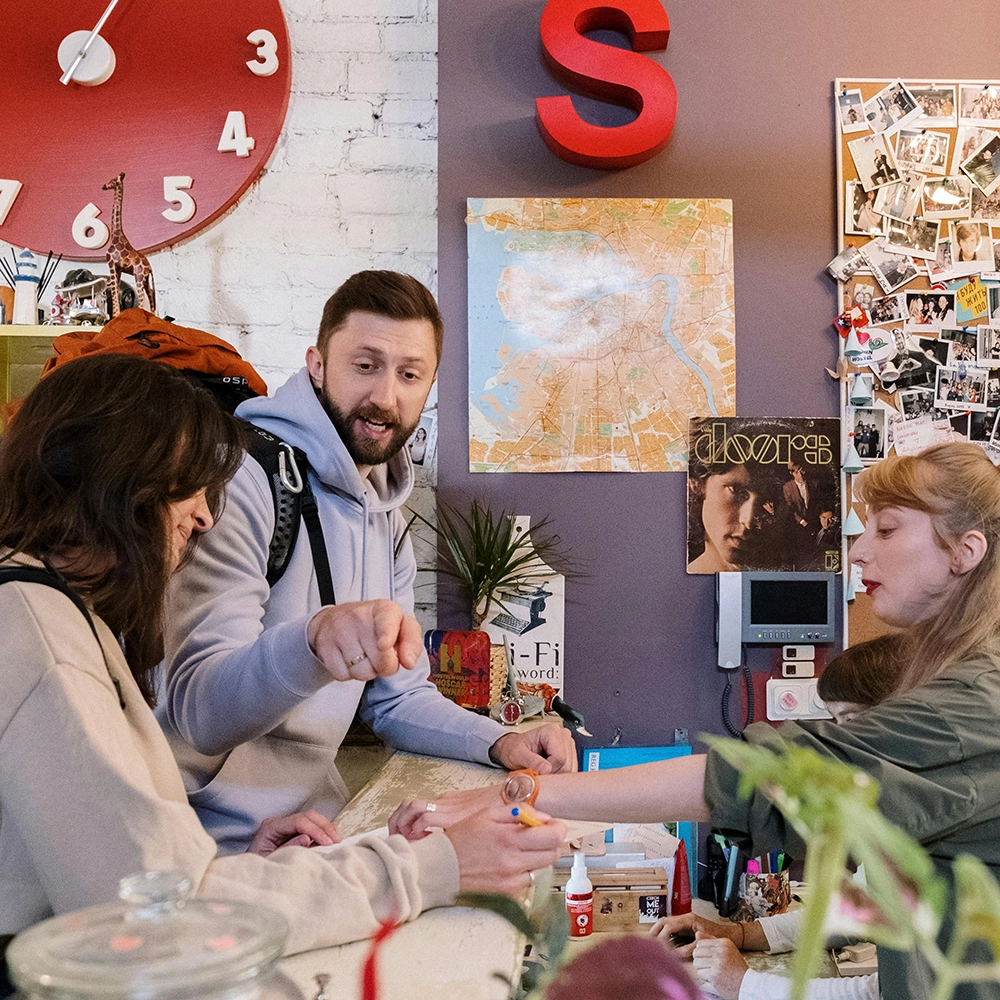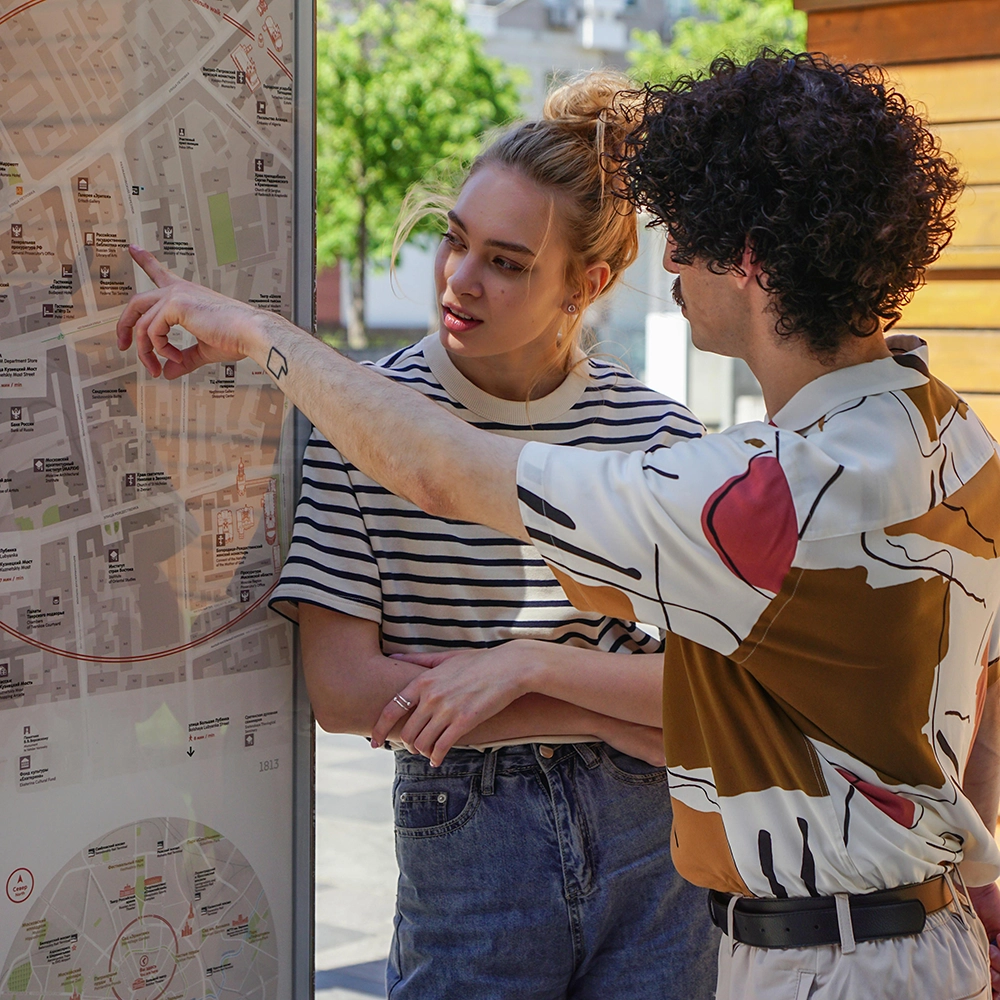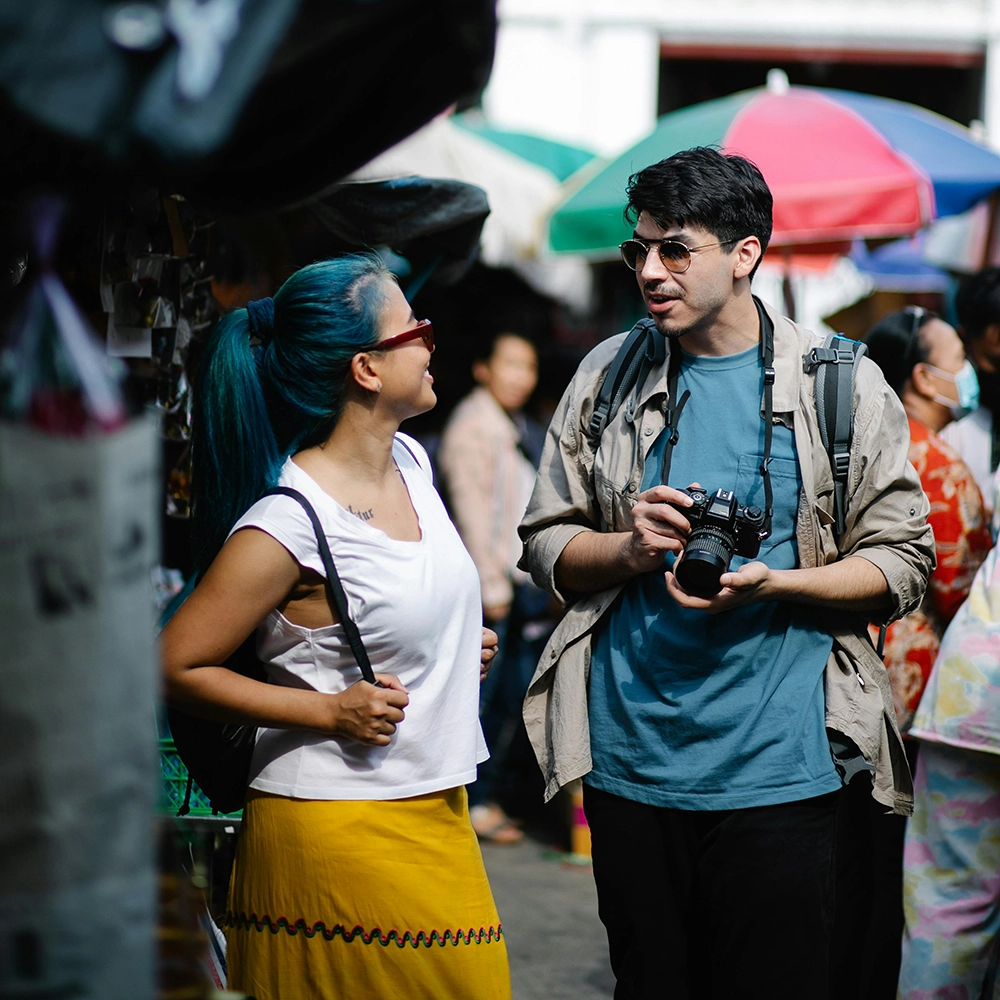Stay around humans long enough, and personality patterns emerge.
In school, there was The Jock, The Nerd, The Slacker and The Pretty Guy/Girl. At the office, there’s The Gossip, The Comedian, The Optimist, and that guy who makes awkward eye contact in the men's room.
You see the same thing while traveling. After more than a decade of living on the road, I've amassed a long mental list of personalities that keep appearing.
There’s the 20-something Aussie surfer who packed nothing but his sunnies and thongs (that’s flip-flops to our American friends). The Peace Corps volunteer who speaks of nothing but the Peace Corps. The foreign exchange student who drinks a bit too much. The local merchant relentless about selling you something.
This list of international stereotypes goes on. Here's an abridged version of my five favorite recurring personalities you run into out here on the road.
1. The Undaunted One
Let me introduce you to Edgar. He lives in a rural village in Guatemala, and he is a hero. To know his story and why he strives daily is to be awed by such a soul. Edgar puts our "problems" into perspective.
Edgar was born with twisted legs that don't bend at the knees. Every day, he wakes up at dawn. With the aid of a crutch, he slowly makes his way to the bus stop. It's only a quarter mile away, but this takes him an hour.
The 15-minute bus ride drops him off a few blocks from Antigua’s Central Park. For most of us, this last part of his “commute” would be a five-minute walk. For Edgar, it’s another hour. And when he gets there, Edgar hustles to earn a living by asking tourists to pay $2 for him to take and print their picture.
Financially, he used to be more successful when he had a Polaroid camera. When they stopped selling Polaroid film in the area, he had to resort to a simple digital camera. Now, instead of being able to give customers an instant Polaroid, he has to ask them to come back the next day for their photo.
He’s at it every day to support his family. Edgar’s eight-year-old daughter wants to be a doctor and so he works to keep her fed, clothed, and in school.
If you ever find yourself in Antigua, Guatemala's Central Park, keep your eye open for Edgar. For just $2 you could have your photo taken by a hero.
2. The Elder Statesman
Wherever you go in the world, in any culture or country, within any political system, regardless of what clothes are worn or gods worshiped, young people are getting themselves into sticky situations and being bailed out by slightly older people.
So it is with travelers. The stories of older, financially more stable travelers helping younger, broke wanderers are as common as crewcuts on the USS Kennedy.
On the road, if you can't access cash and have an unpaid hotel bill, who can you turn to to vouch for you or lend you a dime? You end up feeling utterly doomed.
Here’s the story of just such a doomed traveler in a jungle-bound shuttle bus cranking along backcountry roads in Guatemala. We’ll call him Cory.
The Reader’s Digest version of Cory's story is that everything that could go wrong was going wrong. He was catching the wrong buses and missing the right ones, losing things, injuring himself, and he couldn't shake his Montezuma's revenge.
Cory’s mishaps climaxed when his wallet and passport were stolen. He lost all his money, identification, and, with no credit cards, access to future cash.
Whoever stole these was pretty bold and enterprising. The thief used the information from Cory’s wallet to contact his family back home. They told Cory’s family they were holding him hostage and demanded dinero for his release.
I met Cory right after his family had somehow gotten in contact with the shuttle driver, asking to speak to Cory.
"Who was that?" I asked Cory, surprised, when he hung up. This was the first time in my experience that a gringo had gotten a call on a shuttle driver's cell.
"My dad," he said in a ghostly voice. "He thought I was kidnapped."
At the time, I was traveling with Matt Stabile, the editor of The Expeditioner. Matt seemed mildly amused by the young guy's mishaps.
"What are you going to do for a hotel tonight if you don't have any money?" Matt asked him. That doomed look appeared in Cory's eyes. He had no plan.
When our shuttle arrived and we parted ways, Matt gave Cory $100 to keep him alive until he could figure out how that whole wiring money thing worked.
When you're broke, $100 really can save your life. I still have the image of utter elation on Cory’s face when Matt handed him the cash — he would live to misadventure another day!
3. The Too-Friendly Local
You could be anywhere — walking around Venice, chilling in Cartegena's Central Park, or just trying to find The Sentosa in Singapore — when suddenly, you have a new friend!
Anywhere you go, someone will see that you're not from around there, and they will want to chat with you because of it. If you're open to swapping stories, gab away. What better opportunity is there to see a place from the perspective of one of its extroverted inhabitants?
Your new friend might hang around for a few minutes or several hours. In some cases, a real friendship will form. Most of the time, you end up drinking mint tea and buying a Moroccan rug only to wonder later if the connection was fueled purely by commerce.
Preschool stranger danger rules apply. Always trust your gut and stay in public when you first meet someone on the road.
4. The Eccentric Artist
When author E.A. Bucchianeri said "Weirdism is definitely the cornerstone of many an artist's career," he was talking about characters all too familiar on the road.
Wherever there are people, there are eccentric artists who live in a world much different than the rest of us. They inhabit a lifestyle of their own crafting.
There's a street performer in Valparaiso, Chile, who makes his living by banging two sticks together and shouting gibberish. There was the late "Devil of Prague," a rogue professor who spent the last 10 years of his life painting portraits of himself wearing devil horns on the St. Charles Bridge.
There's "The Ambassador to Yemen," who lives in rural Kisii, Kenya. He has never been to Yemen, but one day he found a sign that read "Yemen Embassy" and he put it in front of his land, declaring himself a diplomat.
Iceland has a film director, Hrafn Gudlaugsson, who turned a junkyard of salvaged objects, piles of concrete, old ship parts, glass, and stone into an impressive house and sculpture garden. He leaves the place unlocked and lets people come by, take a look around, and pet his kitties.
On the road, lovable weirdos will always be the most memorable people you meet. So enjoy every moment you have in the presence of these unique personalities.
5. The Enlightened Lunatic
He’s the most notorious face along the streets of Old Mombasa, Kenya.
Locals call him The Traveler. He’s always going, but he never arrives. His right hand carries an old, leather, book-filled briefcase tied with twine.
Dangling from his left shoulder is an ancient green backpack. His tunic is made from recycled canvas with a return address from a time when the fabric protected a crate being shipped overseas.
“He’s a very educated man,” is what the townies around Fort Jesus relate about him.
“He has no home,” the soda pop ladies in front of Fort Jesus say.
A falafel vendor adds, “He’s a happy, happy man.”
Much of what The Traveler says is a combination of English, French, Arabic, and gibberish. Most of it makes no sense — “And the waters are cold in the villages ... I can’t, I can’t, I can’t do that! You can go while it is and bring me what is, then you can see the lesson!” — but some of it makes a lot of sense.
The soda ladies say he used to be a university professor until he went over some cognitive deep end. He filled his briefcase with books, started eating from alms, and began ranting around The Old Town.
"Where are you going?" people ask him.
"To the airport!" he answers.
But he never gets there. He's been going without arriving for years — and there's poetry somewhere in this fact.
To most tourists who encounter him, he fits the mold of lunatic. The locals speak of him as enlightened. But if you listen to him, one thing is clear. He is abundantly happy.
Find Your Fellow Travelers
People make the place. Be prepared for encounters of all kinds, no matter where you go, with SevenCorners.com.



